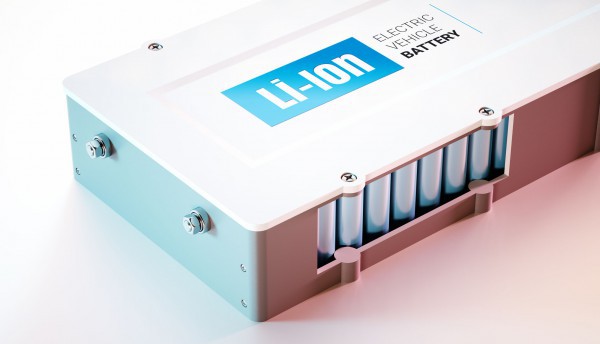
Tokyo-based Idemitsu Kosan Co. Ltd. plans to construct a large-scale production facility for solid electrolytes, a material that is used in all-solid-state lithium-ion rechargeable batteries, the company announced Feb. 27.
Disclosing its plans, Idemitsu said that it aims to expand the production capacity of lithium sulfide, which is an important intermediate raw material for producing solid electrolytes, to the tune of producing in capacity equivalent to 3 GWh per year of storage batteries. The planned production facility for solid electrolytes will help in establishing an integrated value chain, ranging from raw materials to intermediate materials and next-generation battery products in Japan.
With its planned electrolyte facility, Idemitsu said that it will work to meet the requirements of vehicle manufacturers as well as the battery manufacturers that are aiming to commercialize all-solid-state batteries in 2027–28. From there on, it would work to accelerate the commercialization of solid electrolytes.
It is known that developing a suitable solid electrolyte that provides high ionic conductivity, mechanical strength, ensures stability with electrodes, controls lithium dendrite formation and maintains consistent quality over time remains one of the key challenges in the mass production of all-solid-state batteries. This also contributes to a complex manufacturing process, making it difficult to scale up – a technical puzzle that several vehicle and battery manufacturers are working to solve globally.
Earlier in October 2023, Idemitsu Kosan had signed an agreement with Toyota Motor Corporation to jointly develop mass production technology of solid electrolytes with an intent of achieving mass production of all-solid-state batteries for battery electric vehicles (BEVs). Even as the partnership between Idemitsu and Toyota aims to improve productivity while establishing a reliable supply chain for solid-state batteries in Japan, the two companies had said that their collaboration seeks to ensure successful commercialization of all-solid-state batteries in 2027-28, followed by full-scale mass production. This plan is aligned with Toyota’s battery technology roadmap as disclosed at the Toyota Technical Workshop in June 2023.
Internally referred as the Li2S large-scale facility, Idemitsu said it would construct the electrolyte plant within the premises of its Chiba Complex in Ichihara City in Chiba Prefecture. The construction of this electrolyte plant is expected to be completed in June 2027.
According to the company, its plan of building a commercial scale plant for producing solid electrolytes has been approved by Japan’s Ministry of Economy, Trade and Industry. The ministry, it said, terms its bold proposal as a "plan for ensuring supply of storage batteries." The project is estimated to cost approximately ¥21.3 billion (about $141.38 million), of which the government is expected to approve ¥7.1 billion as the maximum grant amount.
Idemitsu plans to accelerate mass production of solid electrolytes with lithium sulfide produced by this facility as the base material and widely deliver high-performance solid electrolytes to various customers. “This will contribute to the government’s policy of strengthening the storage battery supply chain and improving the competitiveness of Japan’s storage battery industry,” the company said.
It is known that the all-solid-state batteries use a solid electrolyte, which allows ions to move faster. The solid-state battery chemistry is already understood to be offering a significantly increased power density, delivering a longer driving range, along with reduced charging time and superior power output when compared with the conventional liquid batteries. As a result, it is expected that electric vehicles equipped with all-solid-state batteries could address most of the long-standing concerns that consumers had when it comes to mass adoption of EVs.
In addition, the solid-state batteries are also resistant to high voltage and high temperature, thereby offering a longer service life.
Idemitsu said that it is operating two small-scale verification facilities for its advanced solid electrolytes at the site. The company said that it began working on the basic design of a large pilot facility in October 2024.
“The decision to construct an Li2S large-scale facility on this occasion was made because mass production of lithium sulfide, an intermediate raw material, is essential for the mass production of solid electrolytes in the future,” Idemitsu said, adding that lithium sulfide is an important intermediate raw material for its solid electrolytes, which are produced from sulfur components generated as a byproduct in the manufacturing process of petroleum products.








